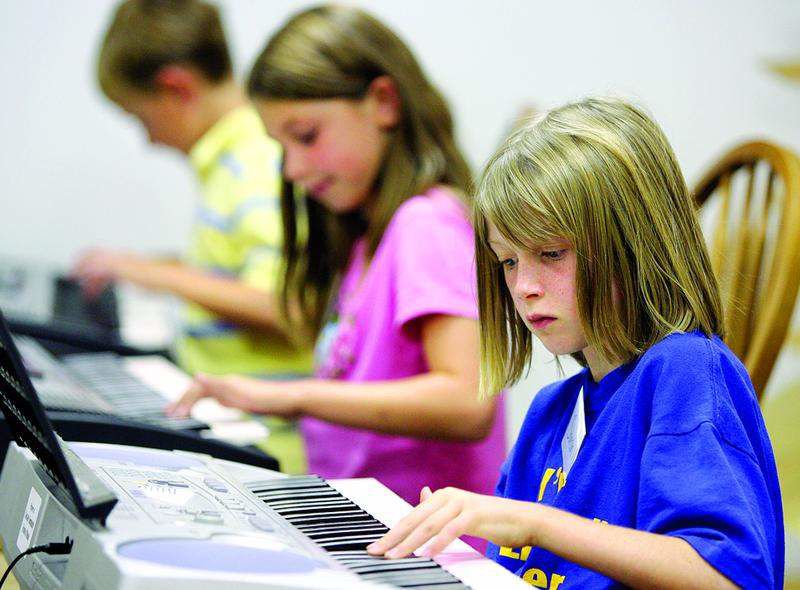Studies show learning music might boost IQ
Published 5:00 am Thursday, September 28, 2006

- First-time piano players Brandon Lasala, 8, from left, Mikayla Grover, 8, and Sarah Schwiebert, 8, all from Bend, learn a basic scale at the Cascade Community School of Music in Bend on Tuesday.
Whether you loved or hated music lessons as a kid, thank your parents. You’re probably smarter because of it.
A number of recent studies suggest that children who receive musical training make greater gains in intelligence and academics than untrained children.
Trending
One of the more definitive studies came from Dr. Glenn Schellenberg, a professor at the University of Toronto who sought to overcome an objection to earlier studies. That objection was that children who take music lessons might be better off even before the lessons compared with children whose parents cannot afford or do not value musical training.
”Put simply, children with high IQs are more likely than other children to take music lessons because better educated and more affluent parents tend to provide music lessons for their children,” Schellenberg said.
To overcome that preselection, Schellenberg recruited 144 6-year-old children through a newspaper ad offering free lessons and randomly assigned the children to one of four groups: piano lessons, voice lessons, drama lessons or no lessons. The children were given IQ tests before and after a year of lessons.
While all four groups showed increases in IQ – as would be expected from children entering grade school – those taking piano and voice lessons showed greater gains than those taking drama or no lessons.
”It is well-established that simple attendance at school raises IQ and that school instruction is particularly effective when classes are small,” Schellenberg said. ”Music lessons taught individually or in small groups may provide additional boosts in IQ because they are like school but still enjoyable.”
This month, another group of researchers in Canada announced a study that for the first time shows that young children who take music lessons have different brain development and larger memory capacity than those who do not.
Trending
The findings, published online by the journal Brain, found that musically trained children performed better in tests linked to general intelligence skills, such as literacy, verbal memory, visiospatial processing, mathematics and IQ. The research involved children ages 4 to 6, half of whom took Suzuki musical lessons. Suzuki is a training method known for teaching young children to play instruments by ear first and to read musical notation later.
The researchers, led by Dr. Laurel Trainor, a professor of psychology at McMaster University, were able to document physical changes in brain activity in response to music.
”It suggests that musical training is having an effect on how the brain gets wired for general cognitive functioning related to memory and attention.”
Both studies add to a long list of research documenting gains in academic achievement attributed to musical training for children and adults.
”A lot of the research gets used to justify the continued existence of music program in schools,” says Dillon Schneider, director of the Cascade Community School of Music in Bend. ”I think music is worth whatever it costs just on its own merits.”
The school enrolls children as early as age 3, but most of the early instruction is aimed at introducing kids to music: teaching them to sing and understand rhythms and some musical notation. The students generally don’t begin playing instruments until first grade.
While Schneider believes children make the most progress when they start learning an instrument at age 8 or 9, he says some kids will be ready sooner, and others, later.
”The other big variable is how involved the parents are going to be,” he says. ”You can start at age 5, but plan on being in the lesson and at every practice session with the child for years.”
Schneider also tells parents that the lessons learned go well beyond music.
”If your child can learn how to practice, they can do anything. It’s a transferable skill that is invaluable even if they never pursue music,” he says. ”Teaching your child about perseverance, commitment, dedication and patience is a great thing, and you can do that with music. It’s a perfect vehicle.”








